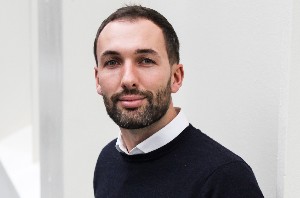Passive funds get time to shine: Kernel
Passive fund managers may have their best opportunity in a decade ahead of them, says Kernel founder Dean Anderson. But others disagree.
Tuesday, March 17th 2020, 6:00AM  3 Comments
3 Comments

Markets have dropped considerably over the past week. The NZX50 closed down almost 5% on Thursday.
Some KiwiSaver managers in particular have reported sharp increases in calls from worried investors – and active managers have taken the opportunity to promote their hands-on approach to management as a way of reducing investor losses.
But Anderson said their claim that they would outperform in a falling market would make it harder for them to sell themselves once the rebound happened and markets start to rise again.
“If anything this will create the greatest opportunity for passive in the next decade,” he said. “What do you want to buy when the market has bottomed out? Active has said it’s hard to beat passive in a bull market … they’ve told everyone they add value in a downturn, if the market has bottomed out what are you going to buy after that?”
He said the challenge would be for active managers to show what they were doing – before prices faltered – to limit the extent of their funds’ drop.
“Did they move to cash 15 days ago or not? I doubt many would have. It’s very hard to time the market.”
Anderson said people were conflating the current market drop with the GFC, which was an incorrect comparison to make.
This time, markets were running efficiently and handling the downturn well, he said. “This is pricing in of the risk, nothing to do with market structure. This is a very different event.”
He said passive investors tended to take a longer-term approach and were not interested in making frequent moves. Kernel restricts buying and selling to once per week.
Passive funds would not drive share price movements as they sold out of tanking stocks, he said, because they were invested proportionately, taking bigger stakes in bigger companies so that their influence was diluted.
Anderson has been at roadshows with financial advisers over the past three days and said it had been notable that few had been dealing with worried calls from clients.
Most had client bases who were comfortable with their asset allocation, he said. “That shows the value of advice.”
On the other side of the argument Heathcote Investments director Clayton Coplestone says: "The ever-present challenge for all passive investment gateways is that – irrespective of how small their fees are – it is a mathematical fact that they are designed to under-perform an index."
The corresponding challenge for active capabilities is that the ‘active’ description captures a vast array of philosophies ranging from ‘passive at an active fee’, to ‘active trading’ to thematic to everything in between, he says.
"Some of these so called active managers perform extremely well during times of heightened volatility, whilst many get caught out – providing passive advocates with the perfect ‘average active manager’ material to promote their preferences.
"The reality is that quality active managers who purchase stocks for sound fundamental reasons enjoy a milder drop than their passive counterparts, and a stronger recovery as stock prices are re-rated to their fair value.
"Some also have an ability to increase their cash reserves during times of uncertainty so that this can be deployed when target stocks become mispriced.
"To put this another way; passive gateways are most appropriate when all investment indicators are pointing in the same direction and the only differentiator is price. At that time, investors should be seeking out the cheapest gateway available – usually at a low single digit price.
"The complacent investment environment that has favoured passive mediocrity over the past decade no longer exists, whereby all industry participants must be active and deliberate around how they construct their portfolios. The old adage of ‘time in’ will disappoint those investors whose advisers are unable / unwilling to add value to their portfolios."
| « Financial adviser Barry Kloogh pleads guilty | Mann on a mission to diversify financial advice » |
Special Offers
Comments from our readers
Whether you choose active manager A or passive manager B for your 5% allocation to emerging markets is far less relevant than your (active) decision to hold emerging markets in the first place.
I know for a fact that (once again!) a lot of ‘absolute return’ managers are getting smashed at the moment. So if you’re relying on active equity managers to protect capital (rather than, say, allocating 30% of the portfolio to a passive bond fund), I fear your clients are going to be asking some justifiably hard questions.
Sign In to add your comment
| Printable version | Email to a friend |




For someone who completely denies the value of passive investment strategies, Clayton sure talks a lot about them :-0